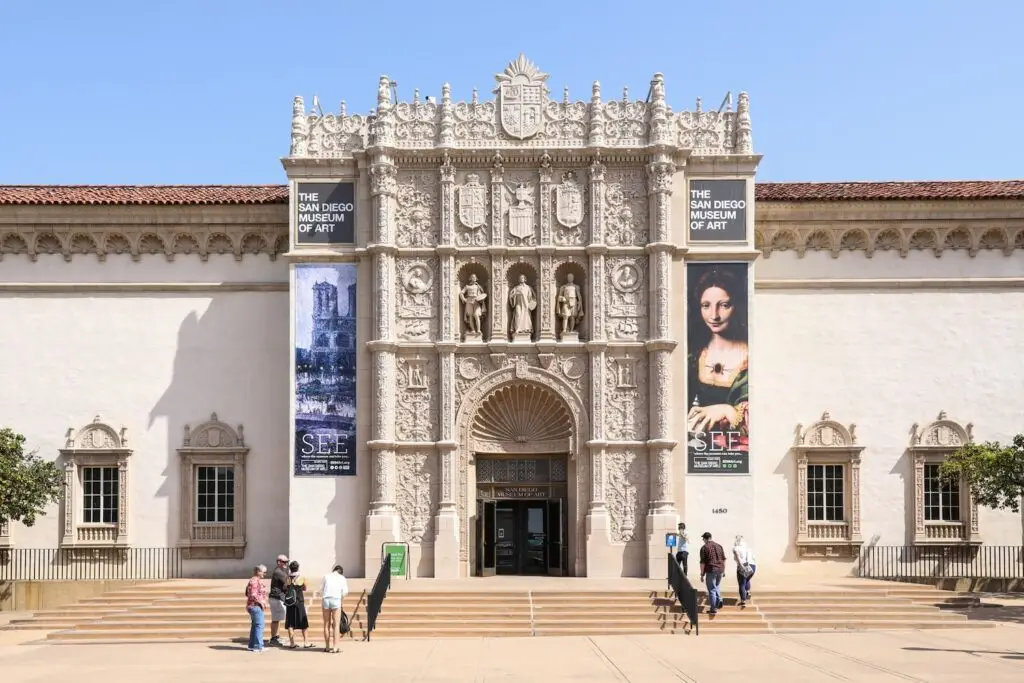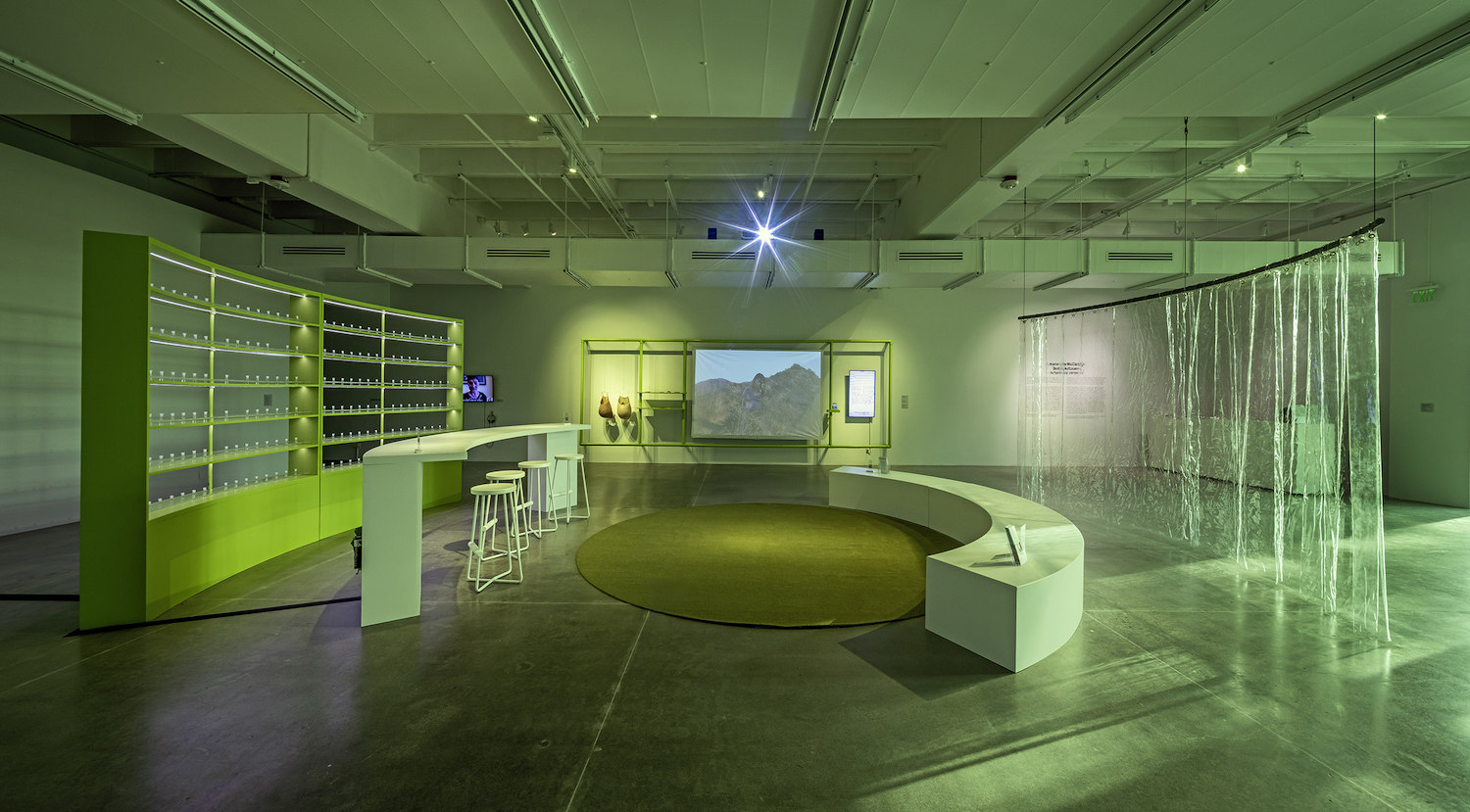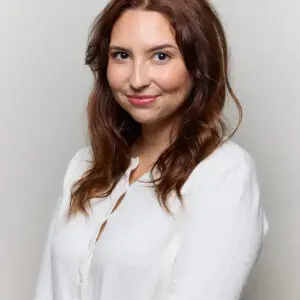There’s something unexpectedly intimate about spitting into a tube. Absurdly, I hope the saliva in the tiny vial will be perfectly clear, that it won’t embarrass me.
After all, eventually someone will walk away with it, my DNA slipped into a waxed paper envelope alongside my rules for its use: My saliva may not be used to determine ancestry or reproduce biological matter or create weapons. You can’t share it with insurance companies or utilize it for criminal tracing or research. These terms are important. “Consent is a big part of this,” says curator Ceci Moss.
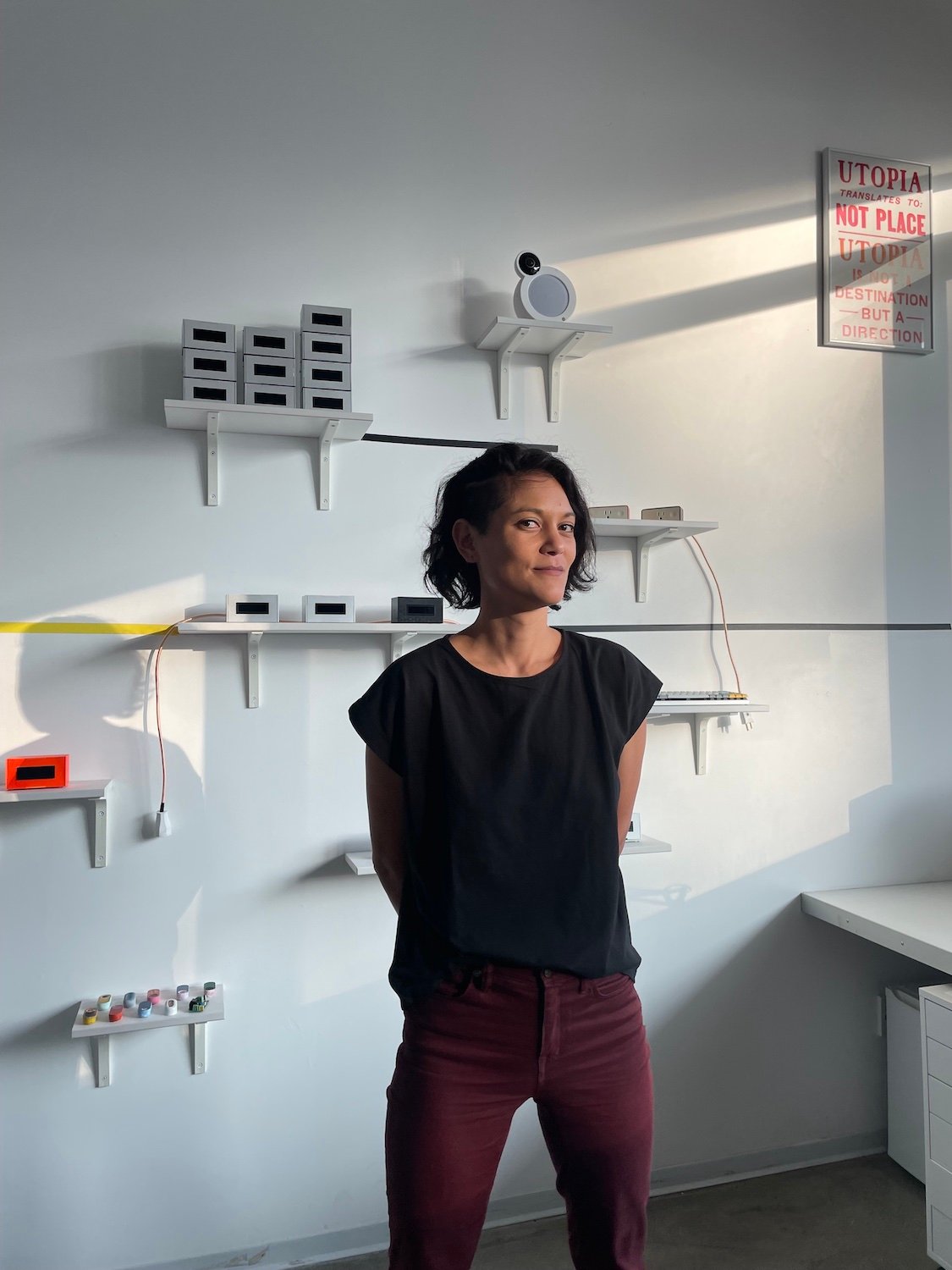
Indeed, consent is at the core of Bodily Autonomy, a solo exhibition of the work of media artist Lauren Lee McCarthy at UC San Diego’s Mandeville Art Gallery. The show has a sci-fi feel, from the wash of green light bathing the gallery to the clinical shelves lined with tiny tubes of spit. My sixth-grade viewing of Gattaca comes to mind.
But there’s a stark familiarity, a right-nowness, to the exhibition’s conceits, especially in the wake of the overturning of Roe v. Wade and the Alabama Supreme Court ruling that frozen embryos are legally children. In Surrogate, McCarthy imagines handing over total control to a family for whom she serves as a surrogate. An app—visualized in projections on the wall—would allow parents to view McCarthy’s daily activities and prompt her to eat, move, and behave according to their bidding.
The Intended Parents from Lauren Lee McCarthy on Vimeo.
Though McCarthy did not fully realize the idea, recorded conversations related to the surrogacy play throughout the gallery, none more striking than The Intended Parents, a short film showing in a dark back room of the Mandeville. In it, McCarthy interviews families for whom she might serve as a surrogate and reveals to them the app’s concept for the first time.
In the project, there are shades of Marina Abramović’s famous Rhythm 0 (1974), in which the artist gave audiences six hours to do to her what they pleased. Eventually escalating to violence, the experiment was a staggering measure of what humans will do when given power without consequences.
So, too, is Surrogate about power—as issues of using another’s body for your own gain always are. “I feel like I would still feel the entitlement like it was my body,” one prospective parent tells McCarthy. “Like even though it’s not my body, I’d be like, ‘But I’m the mom. You don’t get to decide.’”
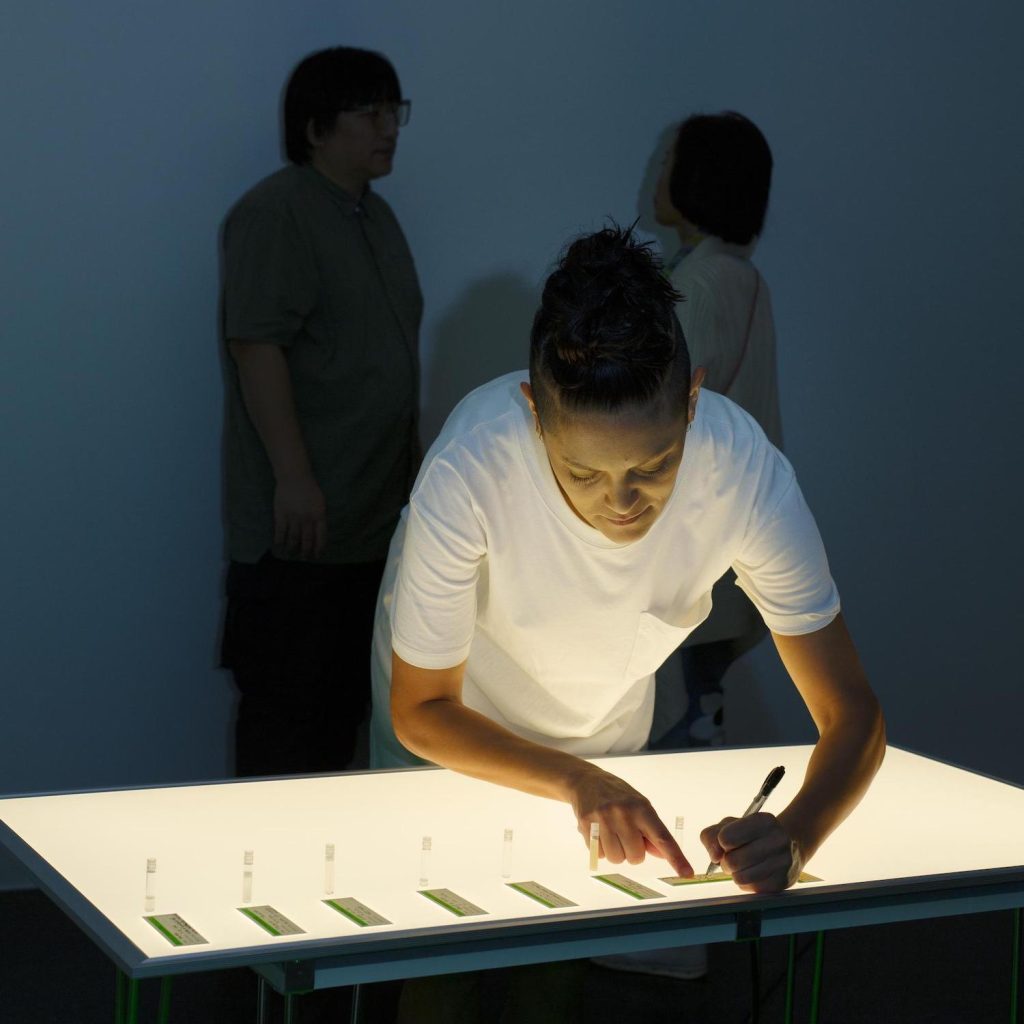
Another parent seems to erase McCarthy entirely, rendering her merely a vessel for their child. “[It’s] almost like we’re controlling you like a video game,” they say. “But it’s not a video game. It’s our baby’s life.” There’s a disquieting speed with which interviewees appear to forget that it’s McCarthy’s life, too, and become comfortable with the concept of their own complete power over her.
But the installation, to me, is also about anxiety. In a world that feels increasingly hostile to life, I can’t pretend not to understand the appeal of total control, particularly when it comes to pregnancy. Take these vitamins, eat these organ meats, don’t dye your hair! A perfect pregnancy won’t preclude postpartum problems, but it might forfend guilt—especially when millennial parenting seems increasingly defined by fear.
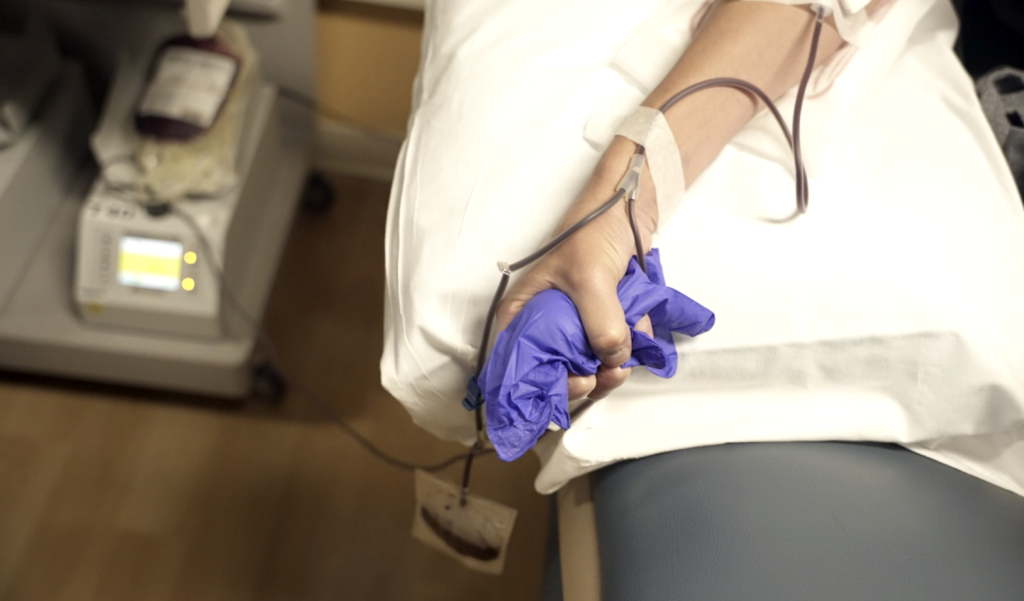
In December 2023, writer Rachel M. Cohen unpacked generational anxieties around childrearing in a Vox piece entitled “How millennials learned to dread motherhood.” Cohen explains that college-educated millennial women with significant financial and social resources (that is, the kind of people most likely to be able to afford hiring a surrogate, though it’s important to note that McCarthy never mentions exchanging money in The Intended Parents) “report the most stress and unhappiness with motherhood.”
At least one potential parent appears to be wrestling with similar fears—and perhaps views McCarthy’s approval as an escape from them. “I think this idea of you being my surrogate would … reinforce that you believe that I would be a good mother, because you would agree to do it,” they tell McCarthy.
Does McCarthy’s ability to absolve this parent’s anxiety return to her some of the power she gives over? Not really. It seems merely another way that the use of her body benefits someone else. The dynamic is inherently deeply lopsided—unlike the exchange at the heart of the immersive saliva-donation experience that is the exhibition’s other major installation.
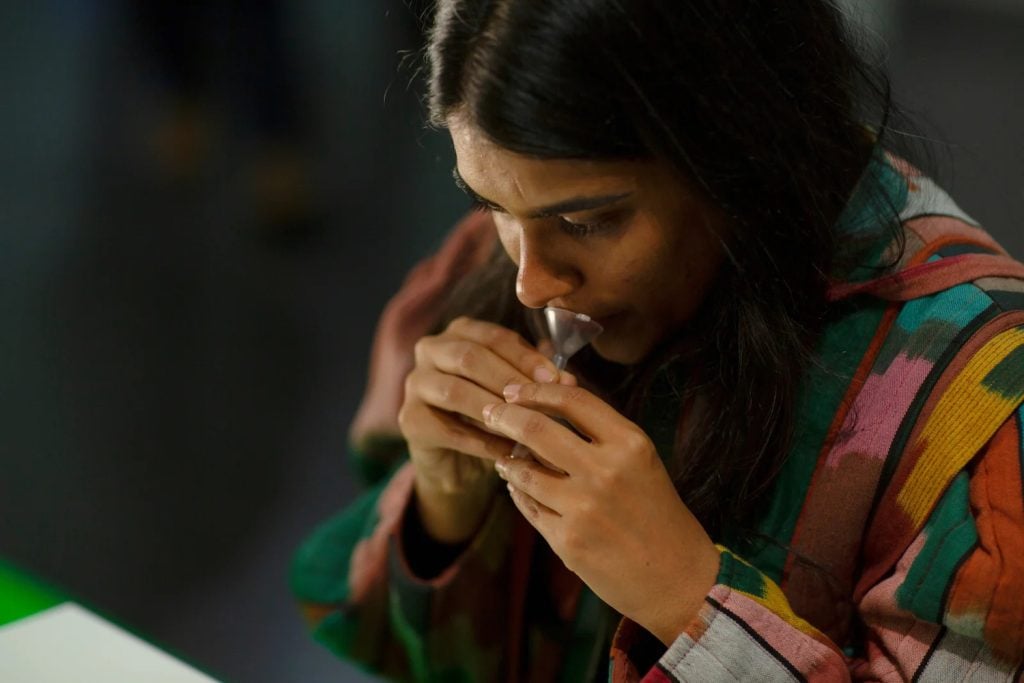
Offering up our biological data usually gets us something: test results, information, access to our phones. The Saliva installation makes this trade tangible and even. When we give up our spit, we receive another person’s in return.
And it’s not random. As soon as I tell the attendant a bit about myself (my age, profession, gender, sexual orientation, character traits—though not my name) and hand over my little vial, they ask me what quality I’m seeking in my donor. “Another queer person, like me,” I suggest.
The attendant keys something in on a tablet, and I’m left to scroll through LGBTQ donors in a database that resembles a sperm bank website. I select the saliva of someone who says they’re a poet. The receipt that comes with the vial lists their qualities and terms of use and bears their signature.
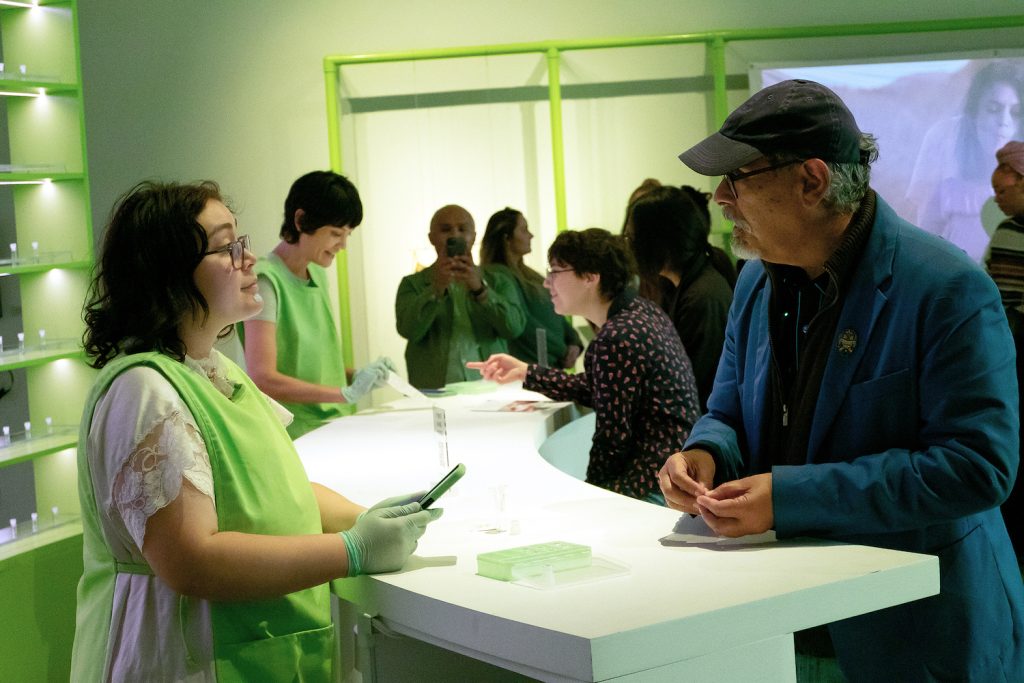
The trade is more symbolic than practical, of course. Sperm banks and other institutions of the increasingly complicated fertility industry are fraught precisely because they allow individuals and families to purchase the keys to a primordial human longing: having a child. For reasons of biology, sexuality, or relationship status, families have limited access to those keys on their own, and so biological material becomes a good, with other resources—money, especially—needed to obtain it. It’s a dynamic I’ve wrestled a lot with myself as a lesbian woman who may want children someday.
Saliva, which we all produce, is a less thorny substance. Nevertheless, the installation is a kind of trust exercise, one that invites us to consider the potential consequences of ceding biological data and the limits of consent.
For only my own ethical boundaries keep me from breaking the terms of use assigned by my donor. With their biological matter in my hands, I’m responsible for honoring their autonomy, as someone else will eventually be responsible for mine.
On the saliva receipt waits a note from my donor: “You are deserving of all the good things in your life.”
PARTNER CONTENT
The message I left for my own saliva’s recipient was less kind, more foreboding. “Handle with care,” I warned.
You can see Bodily Autonomy at UC San Diego’s Mandeville Art Gallery (9390 Mandeville Lane, La Jolla) through May 25.



